When preparing for a food shortage, it isn’t a bad idea to revive the vintage skills that sustained our ancestors through many a tough season. They knew what to do when times got tough and so can you. Self-sufficiency is everything!
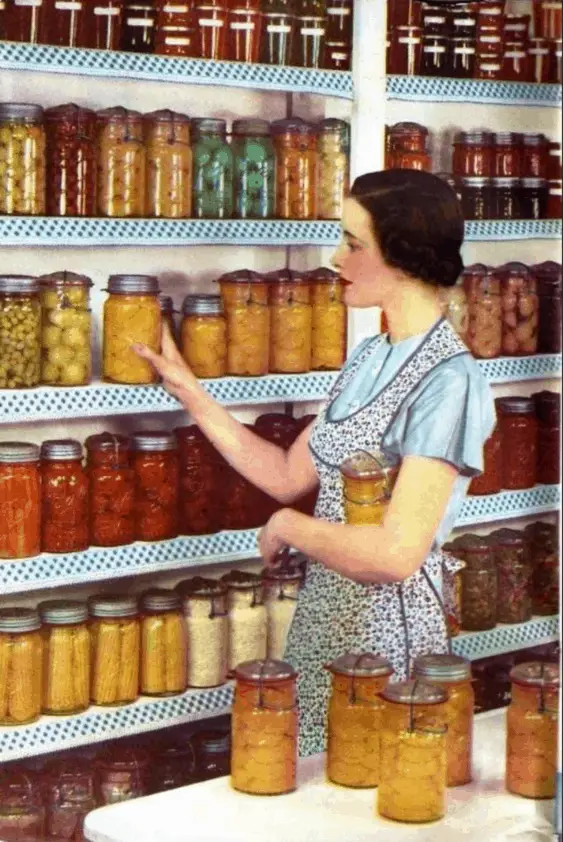
ARE WE IN FOR HARD TIMES?
I don’t want to be an alarmist, but we may be in for some tough times. At the time of writing this, there are signs that the food supply chain is breaking down. There are fast food joints that can’t make everything on the menu because of supply issues.
In Canada, there are now “flexitarian” burgers up for sale that mix ground beef with veggie ground round to stretch the supply. The price of meat is shooting up so fast that it’s leaving people dizzy.
Believe it or not, I wrote this article a year ago, and the headlines are still telling the same story .
These are uncertain times, there’s no doubt about that. Instead of getting worked up, let’s prepare ourselves.
RELATED: How to Ration Food Like it’s WWII
PREPARING FOR A FOOD SHORTAGE: A VIDEO
Are you new to the Kitchen? Well, there’s a video to go with this post! I do things with a vintage twist around here, so to be sure to subscribe to my YouTube channel if you’re an old soul!
This post may contain affiliate links, meaning that if you choose to purchase something after clicking on one of the links in this post, I may earn a small commission at no additional cost to you.
WHY IS THIS HAPPENING?
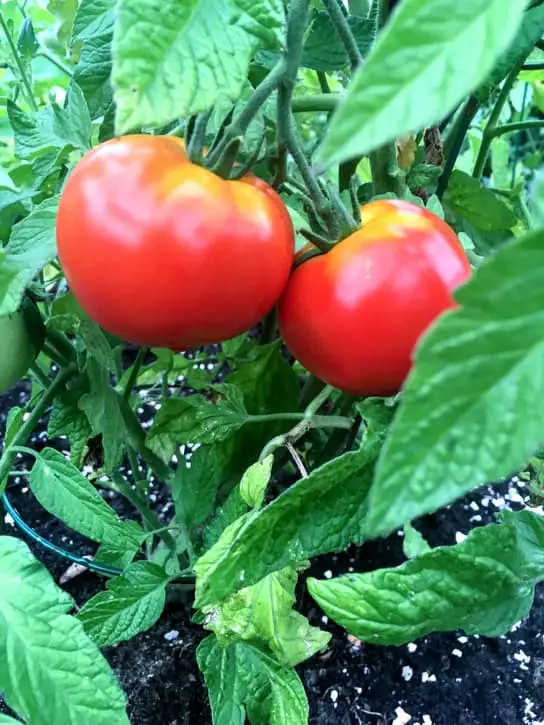
I wrote an article not too long ago encouraging people to start a victory garden. Why? Well, last year I started seeing headlines predicting an increase in food prices.
This is nothing new.
When an English cucumber costs three dollars instead of .99, you can’t help but see the writing on the wall.
Reading into the headlines revealed some speculation about costs going up because of the depleting health of the soil. Oh, that.
If you didn’t know, industrial agricultural practices do considerable damage to living soil by using harmful chemicals like glyphosate.
The growth of mono-crops like soy, corn, and wheat adds further insult. Blend in the rising cost of oil and increasing water shortages and it’s no small wonder that our food bills go up.
The story is different, now, however. While these are still important issues that need to be dealt with sooner rather than later, we’re witnessing something that many of us haven’t seen in our lifetime.
THE FAILING FOOD SUPPLY CHAIN
Right now the media is assuring us that there is plenty of food to go around for everyone. We’re being told that even though we’re seeing a lot of empty shelves and farmers dumping thousands of gallons of milk, we shouldn’t be concerned.
According to Forbes, if there is a food shortage, it will be minor and temporary.
This is happening because many meat processing plants are shut down for business or operating at a greatly reduced capacity. We’re also seeing labour shortages.
Farmers are sitting on animals that are ripe for harvest and can’t be processed. Pigs are being given abortions. Weak animals are being euthanized, and many healthy harvest-ready animals may soon follow suit. It’s ugly.
I have had issues with industrialized meat farming for ages. Not only are the animals deprived of dignity and respect, but the industry is a major polluter.
I really couldn’t fathom how this industry could be slowed down enough to make an impact on the UN’s 2030 climate deadline. I mean, who’s going to willingly give up meat that hasn’t already? Well, here we are.
SHOULD YOU WORRY ABOUT A FOOD SHORTAGE IF YOU’RE PLANT -BASED?
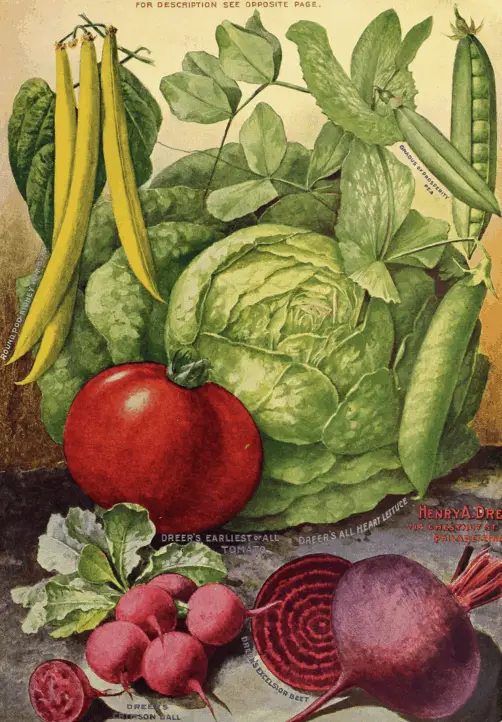
If the meat-eaters of this world are going to be deprived of their meat, they are likely going to turn to the alternatives plant-eaters have been chowing down on for the past decade.
With increased demand, the prices will go up, especially since there’s the whole depleted soil issue that hasn’t been addressed yet. What’s more, processed meat alternatives rely heavily on those soil damaging mono-crops.
Whether you’re a meat-eater or plant-based, we should all prepare ourselves.
Even if this blows over (and I really hope it does), it’s better to be prepared and have food than be unprepared and pay dearly.
LET’S LEARN HOW TO THRIVE
So far, I’ve been a bit of a Debbie Downer. I’m sorry for that, but now we know why we need to prepare!
Let us turn our focus to the things we can do to help us ride the tide of hard times that may or may not be upon us.
If the temporary food shortage blows over like a warm spring breeze, that’s great. All we’ll be left with are good habits, so it would be a win-win situation.
But if we really are up against hard times? Developing our know-how will make an even bigger impact.
At this time, preparing for a food shortage is the smartest thing we can do.
8 OLD-FASHIONED TIPS AND SKILLS FOR PREPARING FOR A FOOD SHORTAGE
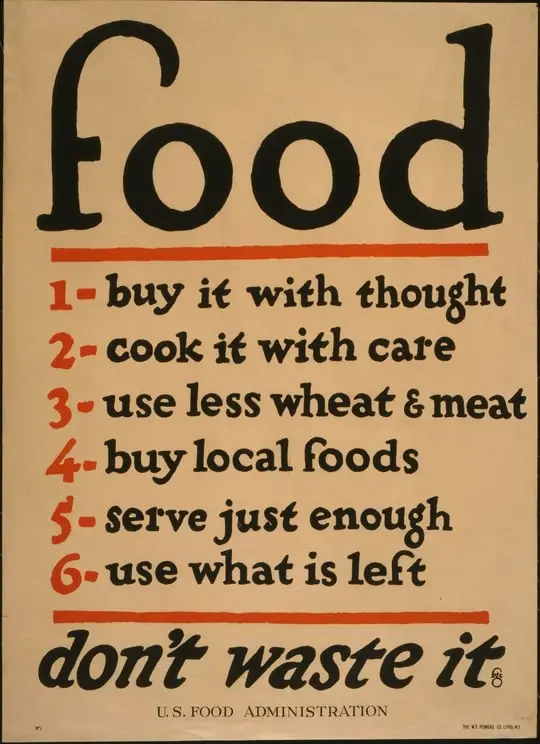
RELATED: 15 Old-Fashioned Skills We Should Bring Back
Our ancestors had a lot of skills that have been lost on us. They needed them to survive.
As our parents and grandparents got comfortable with the easy age of abundance and convenience, transferring these skills down seemed less important.
There’s one thing that rings true for nearly all of the skills we’re going to cover: they’re not for the faint-hearted.
If you want to succeed in preparing for a food shortage, you need to be an ant.
I am, of course, alluding to the story in Aesop’s Fables titled The Ant and the Grasshopper. If you are unfamiliar with this fable, it highlights the industrious ant who works hard all summer while the grasshopper fools around. Come winter, the ant is able to bunker down and enjoy the fruits of its hard labour while the grasshopper is left to beg.
Let’s be the ant in this story.
1. PLANT A VICTORY GARDEN
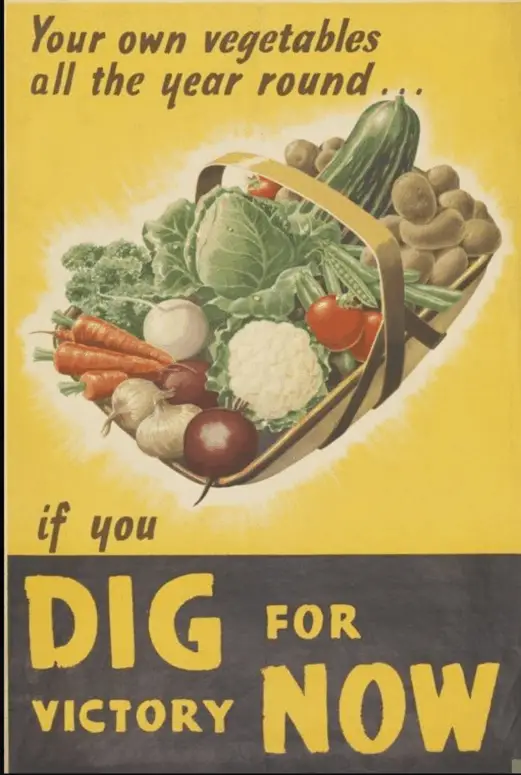
If you haven’t done this already, start one now!
Learn how to grow your own food and start getting those hard beginner lessons under your belt (because there sure are a lot of them!).
There is so much to learn about gardening, and the more you know, the better your yields will be. Gardening is a process and a skill that involves trial and error.
And don’t let a lack of space be an excuse either! Be creative. Use your balcony, start a rooftop initiative, join a community garden, or ask your church if you can transform a part of their property into community-centred garden plots.
Plant herbs and vegetables in containers, burlap sacks, and gallon buckets. Plant a mini garden around a tree. Make use of every inch of space. Grow sprouts. Grow microgreens!
Seriously, grow microgreens:
If you wind up with more produce than you know what to do with, that’s a good thing. That means you can…
2. PRESERVE THE HARVEST
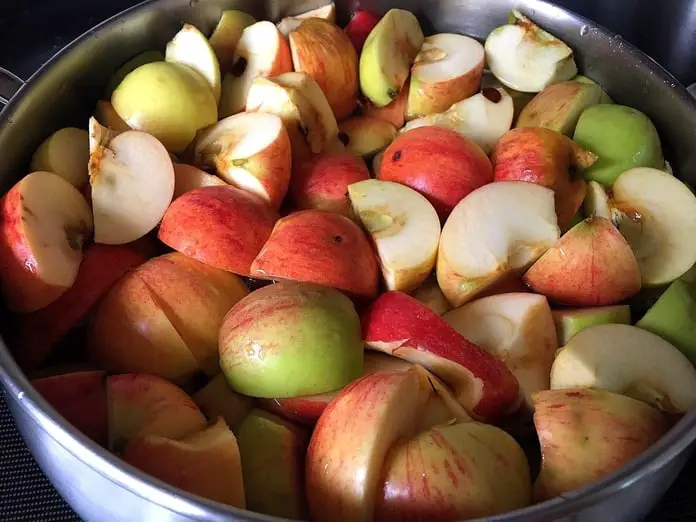
Back in the day, our ancestors had a larder, which kept them fed during the long winter months. Before modern refrigeration, there were cold rooms and root cellars to preserve the harvest.
RELATED: Filling the Larder
While I’m grateful for modern refrigeration, we are way too comfortable. What happens if the power goes out for a few days?
When the day came that every kitchen had a refrigerator, the need for a root cellar disappeared and larders went along with them. So did the kitchen garden.
With victory gardens making a comeback, there will no doubt be an interest in learning how to preserve the harvest.
If you’re unable to grow enough in your garden to sustain you through the winter, don’t sweat it. That’s where supporting your local farmer comes in handy because you can buy bushels of tomatoes, beans, apples, pears, and whatever your heart desires as long as that desire is locally grown.
Shucks, do you have any idea how much fruit goes to waste when it comes to neighbourhood fruit trees? Most people would be grateful if you knocked on their door and asked to pick their crab apples! People who grow zucchini want people like us to share the wealth with!
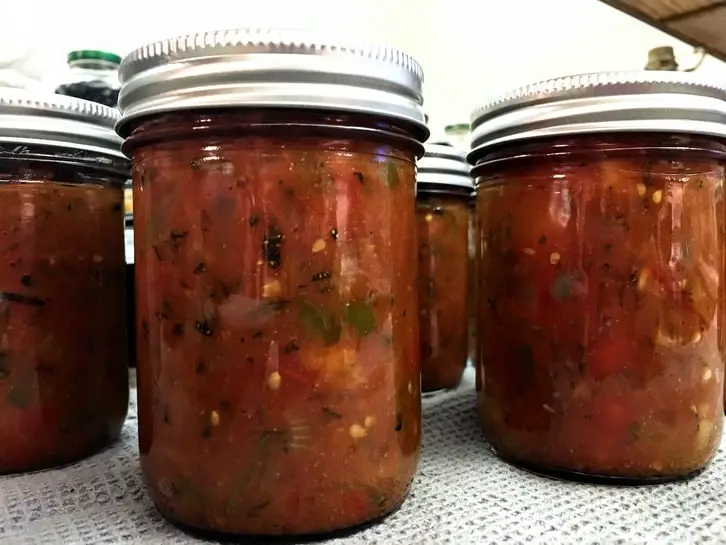
Whatever you preserve, start with products you usually buy a lot of at the store.
You may want to can jars of salsa, stewed tomatoes or tomato sauce. Preserving large batches of fruit for jams, jellies, and apple sauce is another option.
If you grow a lot of herbs, dehydrate them so you can enjoy them all winter long.
Do you have ample freezer space? Try freezing beans, zucchini and corn.
One of my favourite ways to preserve food, which also boosts their vitamin content and transforms them into a probiotic-rich powerhouse is fermenting.
Turn garden-grown cabbages into delicious raw sauerkraut. Pickle carrots, cucumbers, green beans, and jalapenos. When you do this, it will be easier for you to…
3. LOAD UP ON VEGGIES AND BEANS
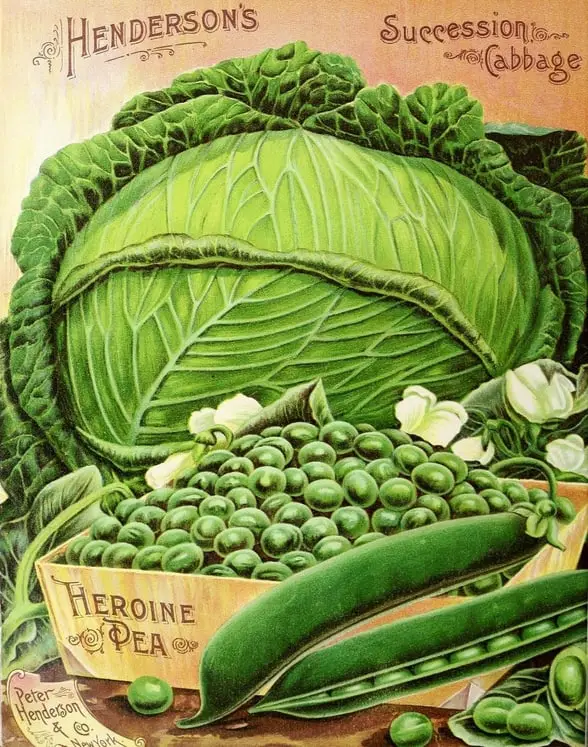
I belong to the camp that believes protein from meat sources is more bio-available than those found in plants. I’m not looking to strike up an argument, but when times are tough and meat gets scarce, it’s time to load up on veggies and beans.
While it’s tempting to buy products that look and taste like meat (especially since they’re disguised as being healthy alternatives) they’re just processed junk.
Pulses (beans and legumes) are your next best alternative, especially if you’re cooking them yourself and not reaching for the convenient BPA-lined cans.
If you’re not sure how to cook beans, don’t worry, I’ve got your back in this post on how to cook dried beans.
When you’re used to having meat on your plate for every meal, it’s hard to switch gears. Many people start out by introducing “Meatless Monday’s”, but seeing how the price of meat is on the rise, there will probably be more than one meatless day of the week.
Start out by mastering a few easy main dishes, like veggie shepherd’s pie and chilli.
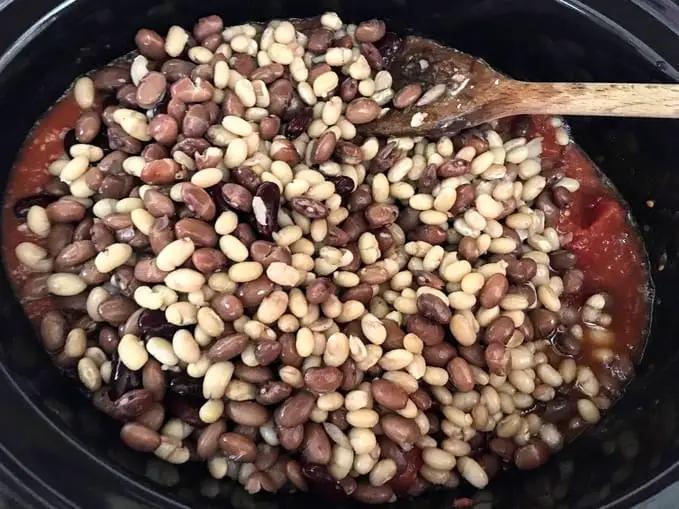
While I’m wary of soy products because they may or may not mess with our hormones and lead to fertility issues (there have been studies for and against this conclusion), I’m even warier of processed soy products. However, fermented soy products like tempeh are something you might want to consider incorporating into your meals to “beef” them up.
4. LEARN HOW TO USE THE WHOLE BUFFALO
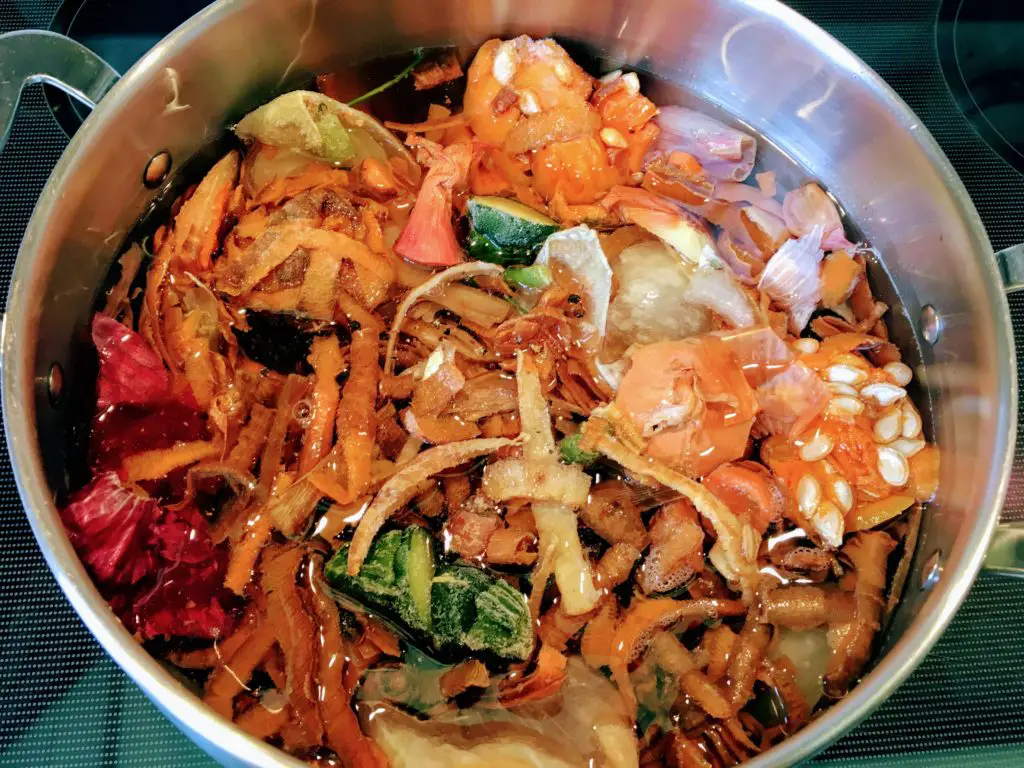
I can’t stress this one enough. In fact, I have a whole post around this wrapped up as my frugal kitchen tips, which I will be expanding on.
During wartime rationing, wasting even the smallest morsel of food was unfathomable. For example, stale bread wasn’t thrown out but was turned into breadcrumbs, croutons, or bread pudding. Meat drippings were used for cooking, baking, and adding flavour.
Living in the age of abundance and convenience, many of us have forgotten a number of penny-saving and food-saving skills. Our great-grandmothers probably roll around in their graves every time we chuck a wilted bunch of celery into the trash instead of making a minestrone soup!
While modern refrigeration is a blessing, many of us forget what we have in there, so we should strive to take a weekly inventory.
Since I will be writing on this topic in detail in the near future, I will leave you with one more example for now: using kitchen scraps to make broth.
Every time you peel a carrot, chop an onion, peel shrimp, or quarter a chicken, put the scraps in a freezer bag. I keep several different ones on the go: one for chicken, another for beef, pork and duck. When I’m low on stock or my freezer is getting out of hand because of the ever-expanding stock bags, I simmer up a batch. It’s a free pot of healthy additive-free broth.
Waste not, want not!
5. LEARN HOW TO FORAGE
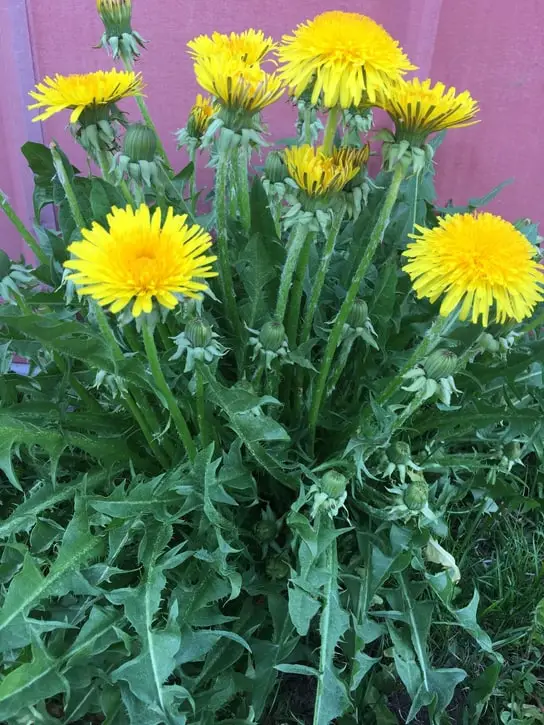
I started getting into foraging in 2018 when I wanted to learn how to identify the plants growing around me. My original goal was to expand my repertoire of plants that I foraged by at least one plant each year. I quickly surpassed that.
RELATED: Why Everyone Should Learn How to Forage (and beginner tips)
Three easy ones you can start out with are dandelions, wild violets, and garlic mustard.
Pesticides aren’t used on my property, so I am comfortable foraging in my backyard. So far I’ve made jelly, pesto, horseradish, and syrup with the fruits of my foraging labour.
As long as you have access to weedy greens like dandelion, plantain, lambsquarters, and purslane, you won’t need to worry about scurvy. Include them in salads, wilt them, or saute them. They’re free, vitamin-rich greens. What’s not to love?
I’m personally collecting lambsquarters (basically wild spinach) and dehydrating it for a rainy day.
Learning how to forage is the perfect skill to learn when preparing for a food shortage!
One thing I would like to caution you against is foraging for mushrooms.
As good as free mushrooms sound, plenty of people have poisoned themselves (and others) because they didn’t know what they were doing. The last thing you want to do is make yourself sick, or, heaven forbid, accidentally kill yourself.
If you can’t get the idea of foraging for mushrooms out of your head, take a class or go out with an experienced guide who can teach you how to identify them.
6. LEARN HOW TO FISH AND HUNT

This tip isn’t for everyone, especially if you’re plant-based or live in the city. However, if you live in the right area, it’s a great way to put food on the table and in your freezer.
Of course, you will need to pay for licenses and tags if you’re going after large game, but with the cost of meat going up as it is, this is looking like an option that makes more and more sense.
Plus, as my own mother tells it (she’s a hunter herself), meat doesn’t come purer than from a wild game animal. Besides, both hunting and fishing are meditative practices.
They exercise patience and you get to be surrounded by nature and silence. To me, that sounds like heaven.
7. STOCK UP ON EMERGENCY RATIONS
Filling your pantry right now is just plain smart. I’ve been stocking up on staples like beans, oats, and rice, as well as adding to my shelf full of preserves and dehydrated goods.
But just in case things go downhill, it’s not a bad idea to stock up on some of the rations that people relied on during wartime.
Rations like…
Other emergency rations I would include are…
You can even buy survival food kits with a 25-year life span just in case. Never a bad idea. I like being prepared.
RELATED: How to Prepare for an Emergency
8.BUY LOCAL
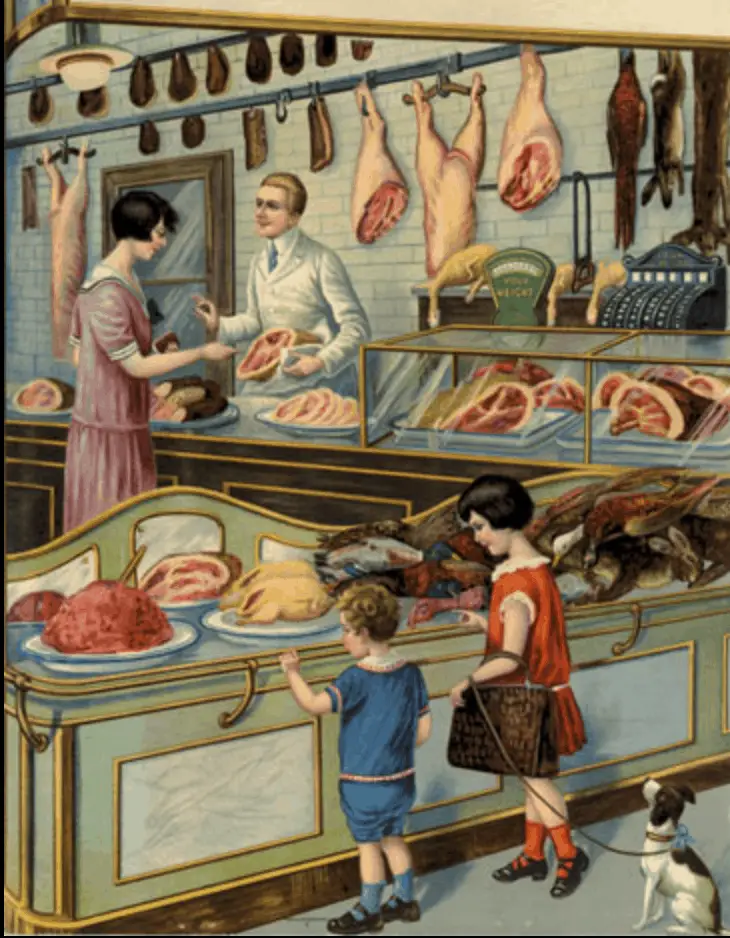
I say this a lot, but support your local farmers and buy local wherever and whenever you can. Get to know your local butcher, baker, and candlestick maker.
Hook yourself up with produce from a small family-operated farm. If you run an online search, you can find directories letting you know where you can find such farms in your area. Not only will your support directly bolster your community, but it’s a way to vote with your dollar.
Many family farms also follow bio-dynamic farming practices. What does this mean? It means that they’re leveraging and respecting the symbiotic relationship between plants and animals.
One thing a number of plant-eaters miss when they argue against raising animals for meat is that the fruits and vegetables that they eat need to be fertilized. Compost from plant matter only goes so far. Plants need nitrogen (and not the synthetic kind).
The healthiest crops are rich in minerals, which only come from healthy soil. Healthy soil is fed by well-fed animals who ideally graze off the land. If animals eat a poor diet, their dung doesn’t do very much enriching. It’s the circle of life at its finest.
Additionally, when the harvest season rolls around, farmers can hook you up with bushels of fresh produce. You’ll be hard-pressed to find these quantities up for sale at the supermarket.
WHAT ARE YOU DOING TO PREPARE FOR A FOOD SHORTAGE?
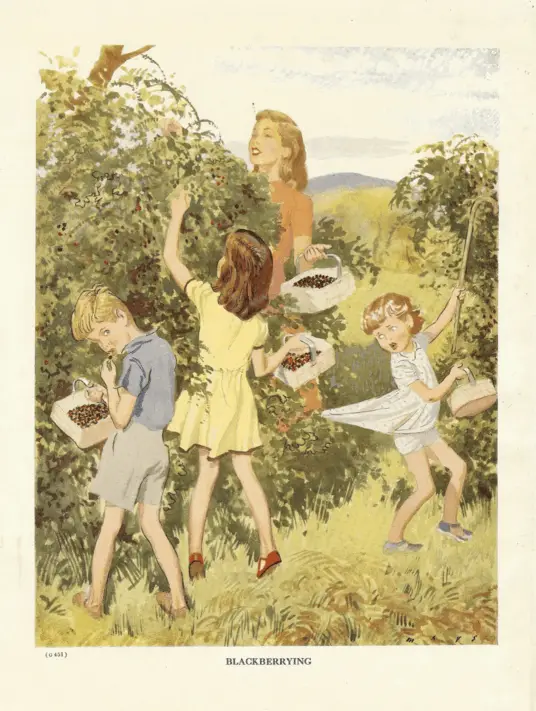
Thank you for popping by the Kitchen today! I hope these tips are helpful and fire up some interest in learning these old-fashioned skills.
Learning how to become proficient in any of these areas is one of the best ways to prepare for a food shortage. As a former Girl Guide my motto is still “Be Prepared”. It doesn’t hurt.
What would you add to this list? I hope you’ll let me know in the comments below!
SKILL-BUILDING POSTS TO HELP YOU PREPARE FOR A FOOD SHORTAGE
A Beginner’s Intro to Curing: Making Duck Prosciutto
30 Foods to Start Making from Scratch
PIN IT FOR LATER
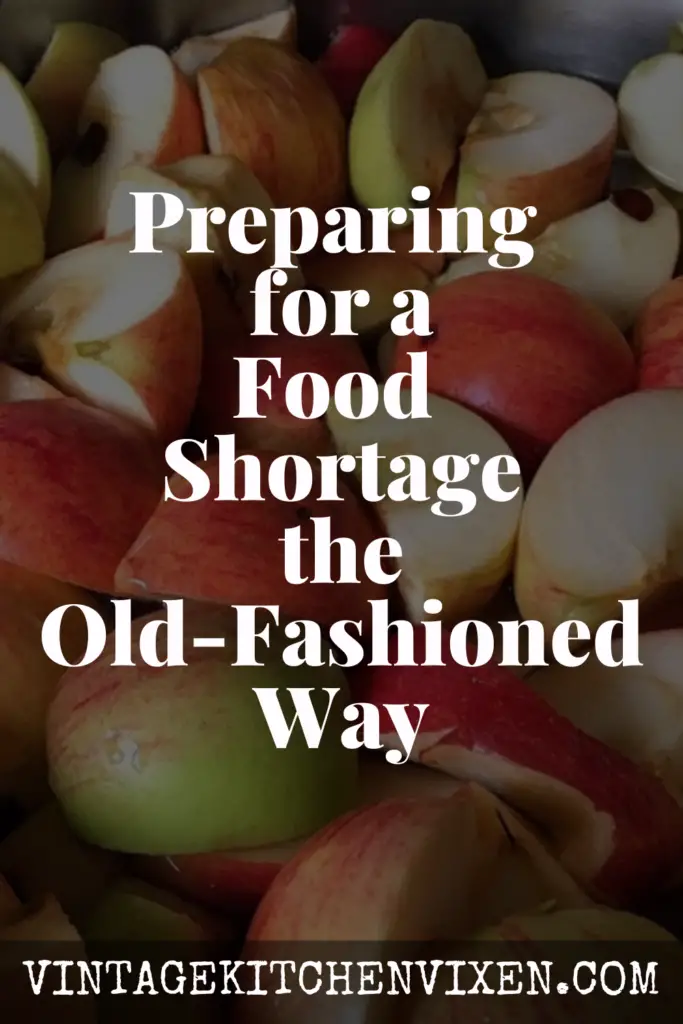
Love and gratitude,



I’ve been gardening and canning and freezing food most of my life. First as a child with my mother and father, next as a young wife and mother when money was scarce, and now as a wife, mother and grandmother. We usually have more food than we can use, so I can a lot to share with my adult daughters and their families. Since COVID came into our lives, we’ve increased the amount of food we plant and frequent local farmers for produce we don’t grow. Every spring the “squirrel” in me comes out and the need to grow food starts. Thank you for encouraging us all to be more self sufficient!
That’s amazing! I was never taught how to preserve food, but I watched my mom doing it when I was a kid and loved seeing all of the jars full of tomatoes, dilly beans, peaches, and pears. It made me feel safe. Self-sufficiency is so important, especially during these crazy times. Thank you for taking the time to share your story!
I know that I do not everything. But I grew up with helping my granny with the canning. My mom with putting up jams jellies , pickles. Sweet and dill. Peppers beets , peprocinnies. Squash of all kinds.i also learned how to can fresh venice. For ven, with gravy and pancakes. Yes none of that black looking meat that was not prepared proper. This is fresh and pink until it is cooked. And very good.they also put up there own. Salmon.Dad tended to 4 gardens at the same time. His and 3 of his sisters. .
I have never been tempted to write a comment on a public forum… until now! You were so articulate and thoughtful. I too have differing opinions/thoughts on seeing both sides clearly. You were able to convey that message. I have been making some attempts to improve myself, and my situation, but I falter at times. Your article gave me inspiration to improve, I will try harder! Future generations will HOPEFULLY be grateful. Thank you so much!
Thank you for the inspiration and knowledge to keep going in these tough times! Much appreciated!
Also, herb gardens. Not only to season food, but to make homemade medicine and beauty products. And talk to the elderly. Those in their 80’s and 90’s. They survived through the Great Depression and WWII. They have invaluable advice about surviving and thriving through hard times.
Yes! Those are both SO important. It’s disappointing to see how our elders are so often overlooked, but I think that’s a byproduct of age segregation. In any case, you’re right. They are founts of knowledge when it comes to survival!
Hi, and thank you for this article.
I remember those shelves.of fruits and veggetables that my Grandma put up. I loved looking at them all in rows on the shelves my Grandpa built for her all the way across the back of their 2 car garage.
Grandpa’s dad died when.he was 6 years old, leacing his widow and 5 children with a ‘stump farm’ in Oregon. Talk about hard times! Grandpa was not a healthy little boy, so while his siblings shared the horse and walked to school, several.miles away, he went foraging with his mother, and fished in hopes of getting some meat for the pot. when he got a bit older, his big brother taught him to hunt, and he became an amazing hunter and fisherman, who could read the landscape and know where the fish or game would be, to the pint that his collegues at the university where he taught would call him to ask where he thought they could have the best chances at the weekend.
I lived 3000 miles away, but went to visit every second summer for 2 weeks-my Dad’s vacation time.
When they rerired, both from teaching, they moved to a 200 acre piece of land that they’d purchased for $95 per acre in the late 1950s. It had been strip logged and rhen grazzed to death by sheep and goats . They started planting trees on the weekends and school holidays, camping in a lean-to with an outhouse and water from a spring about 11/2 a mile.away. By the time they retired, they were a registered tree farm and the house they designed.was on its way to being complete.
Once we arrived as Grandma was up to her eyeballs in canning blackberries . I begged to be shown how it was done, but she said I didn’t need to know because we have supermarkets these days. That is my one and only regret, but I suppose she was almost finished and had had enough for the day.
Grandpa had a kitchen garden that was not very big, but supplied them with all the soft fruit and vegetables they cpould eat and then some.
I am constantly learning more plants to forage, and know how to cook on a fire, and some other bushcraft skills, and I dehydrate things, but other than jam, which doesn’t need a long shelf life in my house, I am nervouse about canning. The cost of the jars is prohibative as well. I would love someone to teach me how to.do.it and where.to.get supplies without breaking the bank.
What an incredible story, thank you for sharing it! Canning jars can be expensive when they’re new, even if you manage to get them on sale. I’m always on the lookout for them at thrift stores and garage sales. You might have luck looking on Kijiji, too! Same thing with canners. Those are pretty easy to find used. It’s the pressure canners that are harder to find (I’m currently hunting for one) which are needed for canning meat and alkaline veggies, like beans. Once you get that first canning session out of the way, you’ll realize just how easy it is. Time-consuming, yes, but easy and so rewarding!
This is a wonderful article.Too many Americans today have developed a secret FETISH: They want other people to believe that they are WEALTHY.
Back during the Great Depression; Beef tongue was a meat you’d serve to guests for Sunday Dinner. No one would object. You were serving BEEF for dinner.
Now a days ; people only want to be seen eating food advertised today on the WEB,or because Paris Hitton says it’s wonderful. Those same people identify organ meats and SPAM as: “Food Only POOR people eat”.
If any food shortages hit anytime soon;I’m ready for them. My family has planted a huge garden. I collect SPAM recipes. Plus organ meat ones
Most people don’t even know what to do with organs anymore! I suggested making beef tongue tacos when I had family visiting and they were revolted by the idea. How did organs get such a bad reputation? They’re so nutrient-dense! And cheap! Also, hard to find sometimes, so really, they’re a delicacy. Thank you for chiming in!
Thank you for writing this. I plan to buy some flower pots to plant vegetables & fruits. A friend of mine has an apple tree I can take from. I do canning. I have water & pressure canners. I have herbs growing that I dehydrate. I feel an urgency to get started but it has been too cold.
As long as you hold onto that sense of urgency going into the growing year, you can make the most out of it! I’m in a colder climate, too, and really wishing I had a greenhouse.